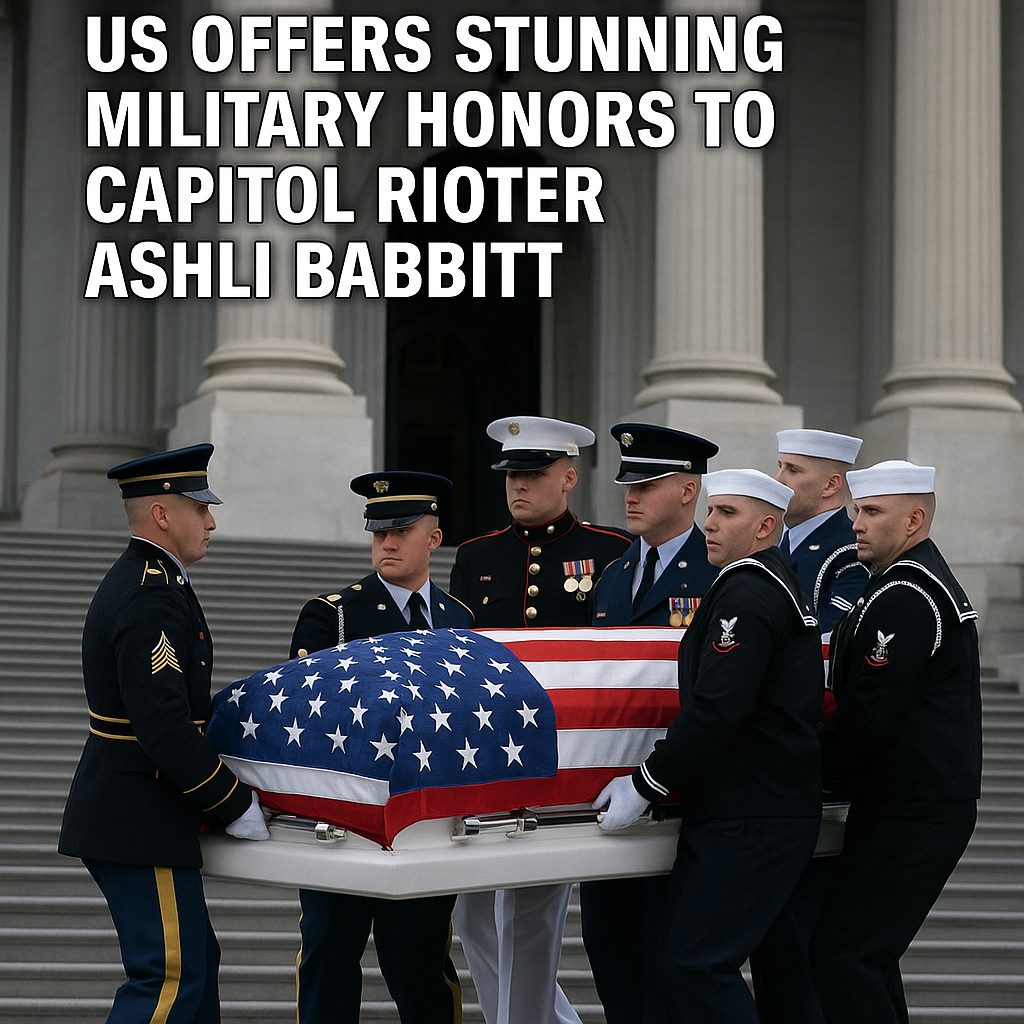US Offers Stunning Military Honors to Capitol Rioter Ashli Babbitt
US Offers Stunning Military Honors to Capitol Rioter Ashli Babbitt
The recent decision to extend military honors to Ashli Babbitt, a Capitol rioter who was shot and killed during the January 6, 2021, insurrection, has ignited a passionate debate across the nation. This development not only raises questions about the appropriateness of such an honor for someone involved in an event marked by violence and chaos but also highlights the complex intersections of patriotism, governance, and accountability in contemporary America.
Background of the Event

Ashli Babbitt, a 35-year-old Air Force veteran, became a focal point following her death amidst the violent attempt to overturn the 2020 presidential election results. The circumstances surrounding her death—shot by a Capitol police officer while attempting to breach a barricaded door—have drawn significant media attention and public scrutiny. Proponents of honoring Babbitt argue that, as a military veteran, she deserves recognition and respect. Critics, however, emphasize the gravity of her actions that day and question the appropriateness of military honors given her involvement in the insurrection.
Mixed Reactions from Various Sides
On one hand, supporters of the military honors argue that Babbitt’s status as a service member should exempt her from the stigma associated with her actions during the Capitol riot. They contend that serving in the military is a commendable endeavor that entails sacrifices worthy of recognition. As one supporter stated, “She fought for our freedoms, and that should never be forgotten, despite the context of her final moments.”
Conversely, critics of this decision lament the message it sends. They assert that honoring Babbitt as a military figure undermines the rule of law and the sacrifices made by countless other service members who honor democracy rather than seek to destabilize it. Echoing these sentiments, a political analyst mentioned, “Offering military honors to someone who attempted to breach the integrity of our democratic processes poses a dangerous precedent. It blurs the lines between honoring service and endorsing insurrection.”
The Complexity of Modern Patriotism
The decision to bestow military honors on Babbitt encapsulates the evolving nature of patriotism in the United States. Many Americans are grappling with what it means to support their country while also addressing issues of accountability and justice.
The tension between honoring individuals who serve in the military and scrutinizing their actions in a civic context has become increasingly pronounced. Some argue that military service should come with a caveat: it does not grant immunity from the consequences of one’s actions. Others insist that a veteran’s sacrifices should be honored, regardless of their post-service decisions.
A Case Study in Dualism
The situation also underscores a larger dualism within American society. The debate over Babbitt’s honors reflects differing values and beliefs about democracy, civil disobedience, and the limits of patriotism. Observers note that this schism is symptomatic of a deeper national identity crisis, where contrasting ideologies often clash in public discourse.
Media coverage has provided mixed perspectives. For instance, reports from Mercury News highlight how some see Babbitt as a martyr to a cause they view as worth dying for, while others categorize her actions as treasonous. Acknowledging these contrasting views is paramount for fostering a well-rounded understanding of the situation.
Conclusion: A Nation Divided
Ultimately, the offer of military honors to Ashli Babbitt serves as a reflection of a nation grappling with its ideals and values. As debates unfold around her legacy, it becomes increasingly clear that the conversations around honor, service, and accountability are far from settled.
The complexities of modern patriotism demand careful consideration and open dialogue. As the national narrative continues to evolve, the challenge will be to strike a balance between honoring those who have served and holding individuals accountable for undermining democratic principles. While the decision to honor Babbitt has sparked divergent viewpoints, it also invites a broader examination of what it means to be patriotic in today’s America. In this way, the conversation surrounding Babbitt’s honors reflects not just on her actions, but on the multifaceted nature of American identity itself.








